Register Now for GLAMhack 24 in Lucerne!
Register now for the 10th edition of the Swiss Open Cultural Data Hackathon, taking place in Lucerne from September 6-7, 2024. The event carried out in partnership with the Central and University Library Lucerne is an excellent opportunity for cultural institutions, software developers, digital humanists, artists, Wikipedians, and many more to come together and drive innovation in the heritage sector.
This year’s theme is “On the Move”. In preparation for the hackathon, we invite you to check out our datasets, submit a challenge, or contribute your institution’s data.
Workshop GLAM & Digital Humanities (5 Sept, Afternoon)
If you have time, join us already on 5 September 2024, in the afternoon, for our workshop on GLAM & Digital Humanities, in cooperation with DARIAH CH.
Open GLAM Night (5 Sept, Evening)
On the eve of the hackathon, we invite you to celebrate with us the Open GLAM Night at Lucerne Neubad, with contributions from Mexican artists, a participatory performance of the Swiss Afro-Cuban artist Ivonne Gonzalez, and a kaleidoscope of “remarkable” Lucernese people.
The first part of the event will be live-streamed to one of the cinemas of the Complejo Cultural of the Benemérita Universidad Autónoma de Puebla (BUAP), our Mexican partner organization.
The OpenGLAM Night is open to the public and does not require registration. So don’t hesitate to bring your friends and loved ones and introduce them to the world of OpenGLAM (detailed program).
Introduction to Wikidata in English and German and Wikidata Coffee Breaks
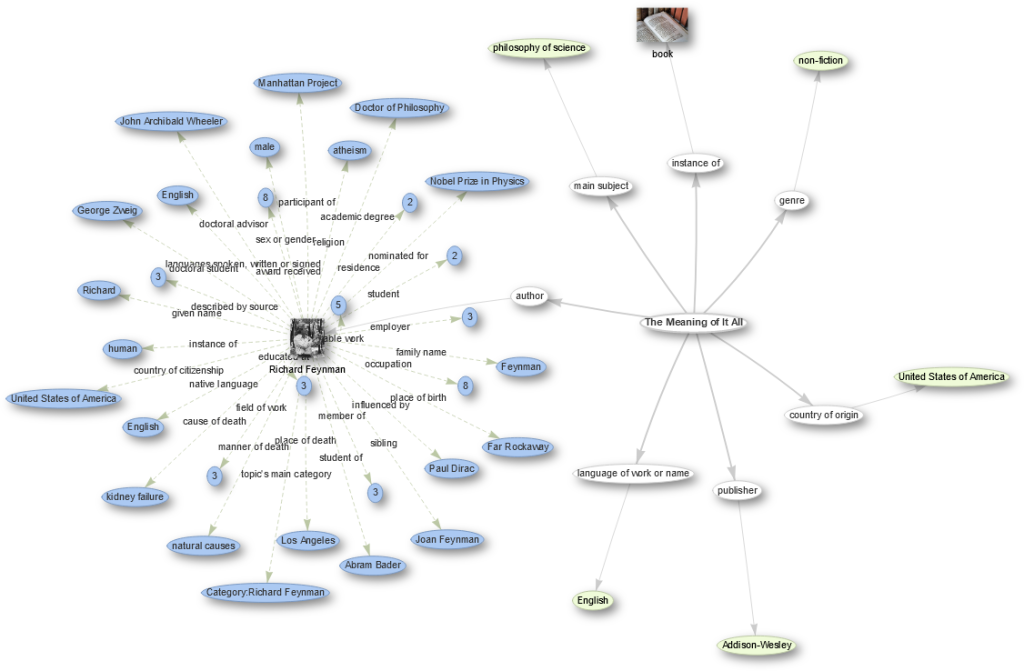
Wikidata is a powerful platform that has revolutionized the way we access and manage information. As part of our Sum of all Swiss GLAMs initiative, we are excited to announce a new round of free introductory courses in English and German. These courses are designed to help you understand the basics of Wikidata and how to use it effectively for your projects. With the support of Wikimedia Switzerland, we are making these courses available online to ensure that everyone has access to this valuable learning opportunity. Whether you are a seasoned Wikidata user or just getting started, we invite you to join us and discover the endless possibilities of Wikidata.
Einführung in Wikidata auf Deutsch
17. Mai: 10:30am – 12:15pm
Sprache: Deutsch (online)
Lernen Sie die Grundlagen von Wikidata mit unseren Dozenten. Unser praxisorientierter Kurs ist perfekt für Anfänger oder diejenigen, die ihre Kenntnisse auffrischen möchten. Melden Sie sich jetzt an und werden Sie ein Wikidata-Profi!
Inhalt des Kurses:
- Einführung in WikiData
- WikiData Syntax (RDF Triple)
- Einfaches Erfassen von Daten
- Einfache SPARQL-Abfragen
Kursleitung: Gaston Wey (Opendata.ch)
Anmeldung per Hitobito: https://opendata.hitobito.com/de/groups/5/public_events/6
Introduction to Wikidata in English
24 May: 2pm – 3:45pm
Language: English (online)
Learn the basics of Wikidata with our instructors. Our hands-on course is perfect for beginners or those looking to brush up on their skills. Enroll now and become a Wikidata pro!
- Introduction to Wikidata
- Wikidata syntax (RDF Triple)
- Simple data entry
- Simple SPARQL queries
Course leader Gaston Wey (Opendata.ch)
Registration by Hitobito: https://opendata.hitobito.com/de/groups/5/public_events/5
Wikidata Coffe Breaks
Join another edition of our exciting event to fill in missing information on Swiss GLAM institutions in Wikidata! With just 20 minutes of your time, you can help make a real difference in the world of knowledge sharing. Work with like-minded individuals, learn from experts, and have fun! So grab your favorite coffee mug, mark your calendars, and get ready for an event that promises to be both educational and entertaining. We can’t wait to see you there!
Monday, 22.5. 3pm
Tuesday, 23.5. 4pm
Wednesday, 24.5. 10am
Thursday 25.5. 10am
No prior knowledge or registration required – we’ll explain everything. All you need is an open mind and a willingness to learn. Join for a fun and educational experience!
We will be adding coordinates, websites, and other data.
We’ll meet on zoom:
Join Zoom Meeting: https://us06web.zoom.us/j/84091226782?pwd=WDlLRFBYd0hPdVkyZjg3d0N6YVJmUT09
GLAMhack23
Sign up now for the 9th Swiss Open Cultural Data Hackathon in Geneva.
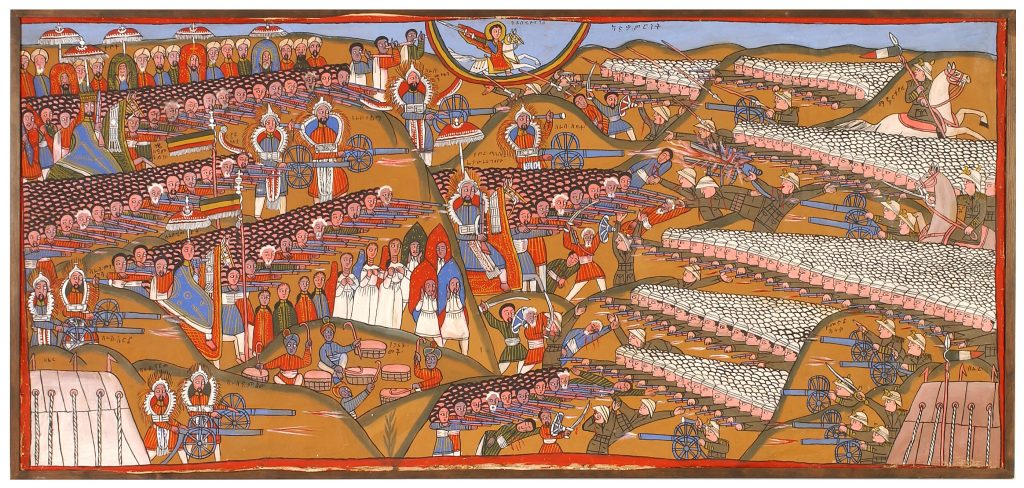
29. – 30.09.2023 @ Musée d’ethnographie de Genève, Geneva, free
Colonial collections, provenance research and the application of the FAIR and CARE principles in data governance!
After putting our efforts into raising awareness about OpenGLAM among museums, encouraging projects which engage an audience, working with linked open data, machine learning, human-computer-interaction and crowdsourcing, the focus of the 2023 edition lie on colonial collections, provenance research, as well as the application of the FAIR and CARE principles in data governance.
As in the previous editions, all types of heritage institutions are encouraged to provide data and to participate in the hackathon; it is our goal to improve the networking among them, especially also across sectors (museums, archives, libraries). As in most previous editions, the hackathon will last two days, with an online and offline side programme in the weeks preceding the event to transfer know-how on specific topics and foster the exchange among the OpenGLAM community.
We will spend 2 to 2.5 days at the Musée d’ethnographie de Genève (MEG) in Geneva from 29 to 30 September.
The GLAMhack 2023 official program starts on Friday, but we are working on a possibility to participate in a side programme already on Thursday.
Introduction to Wikidata in English and German
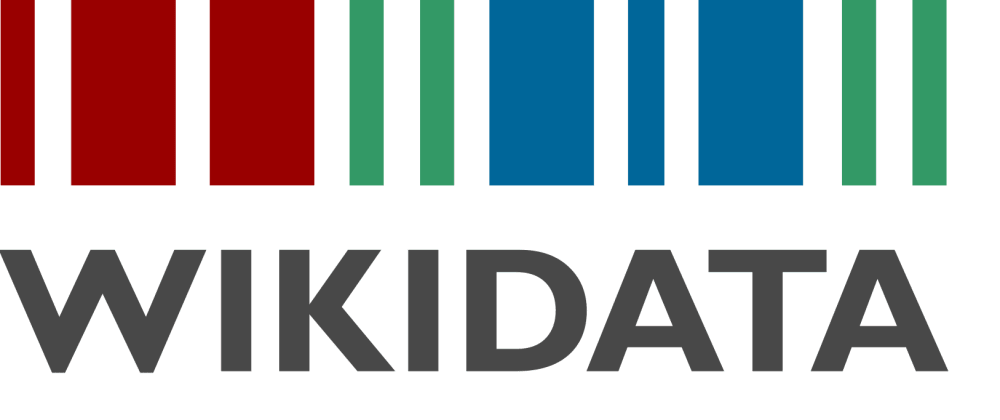
As part of our Sum of all Swiss GLAMs initiative, we are organizing free introductory courses to Wikidata in English and German. This initiative is supported by Wikimedia Switzerland. The course will be made available online so that as many participants as possible can join in.
7. September: 10:30 – 12:15
Introduction to Wikidata in English
Language: English (online)
In this course, you will learn the basics of Wikidata. Simple exercises are used to reinforce what you have learned.
- Introduction to Wikidata
- Wikidata syntax (RDF Triple)
- Simple data entry
- Simple SPARQL queries
Course leader Gaston Wey (Opendata.ch)
Registration by email to gaston.wey@opendata.ch.
16. September: 10:30 – 12:15
Einführung in Wikidata auf Deutsch
Sprache: Deutsch (online)
In diesem Kurs lernen Sie die Grundlagen von Wikidata kennen und wie sie Wikidata nutzen können. Anhand einfacher Übungen wird das Gelernte vertieft.
Inhalt des Kurses:
- Einführung in WikiData
- WikiData Syntax (RDF Triple)
- Einfaches Erfassen von Daten
- Einfache SPARQL-Abfragen
Kursleitung: Gaston Wey (Opendata.ch)
Anmeldung per E-Mail an: gaston.wey@opendata.ch.
Wikidata Coffe Break July 22

Join us for a Wikidata Coffee Break and help fill in missing information on Swiss GLAM institutions.
On each of the dates below, we will meet online on zoom for 20 minutes and add missing information on Wikidata.
Monday, 18.7. 15:00
Tuesday, 19.7. 15:00
Thursday, 21.7. 10:00
Friday, 22.7. 10:00
No previous knowledge or registration is necessary. Just show up and have some fun with Wikidata. We’ll explain to you how it works. However, ideally, you’ll already have a Wikipedia or Wikidata account.
We will be adding coordinates, websites, and other data.
We’ll meet on zoom:
Join Zoom Meeting
https://us06web.zoom.us/j/84056734487?pwd=bTB3QU9VdTc2MXF5aTBDenRGcndHZz09
Meeting ID: 840 5673 4487
Passcode: 914190
Query:
https://w.wiki/5U83
Sign up for GLAMHack2022 & Pre-Events!
8th Swiss Open Cultural Hackathon in collaboration with the SUPSI in Mendrisio.
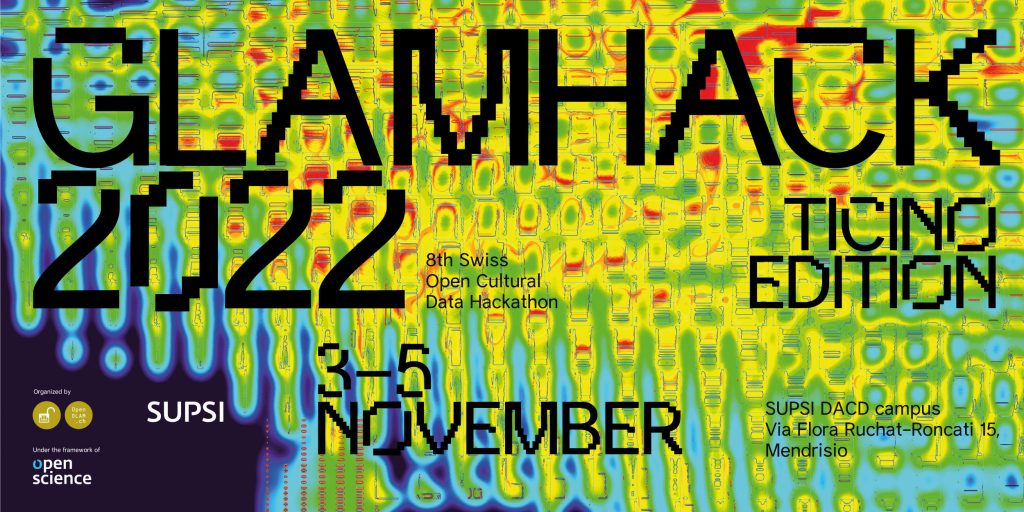
Opendata, performing arts, biodiversity!
This year’s 8th Swiss Open Cultural Hackathon is bringing together hackers, GLAMmers, coders, curious, artists, architects, design aficionados, biologists, scientists and all people interested, caring and passionate about all things GLAM!
We will spend 2-2.5 wonderful days at the SUPSI in Mendrisio and will have the University’s FabLab at our disposal.
The GLAMHack22 official program starts on Friday, but we’ll have networking and workshop opportunities ready from Thursday, November 3rd afternoon onwards.
Sleeping arrangements are possible at the Hotel Coronado in Mendrisio (please specify how many nights you’ll need when signing up, all rooms are shared).
SHARE YOUR DATA in view of the next Open Cultural Data Hackathon
You may own cultural data that you are ready to share. Please look at the infosheets and if you have any questions, feel free to contact beat.estermann@openglam.ch.
GLAMHack2022 Pre-Event
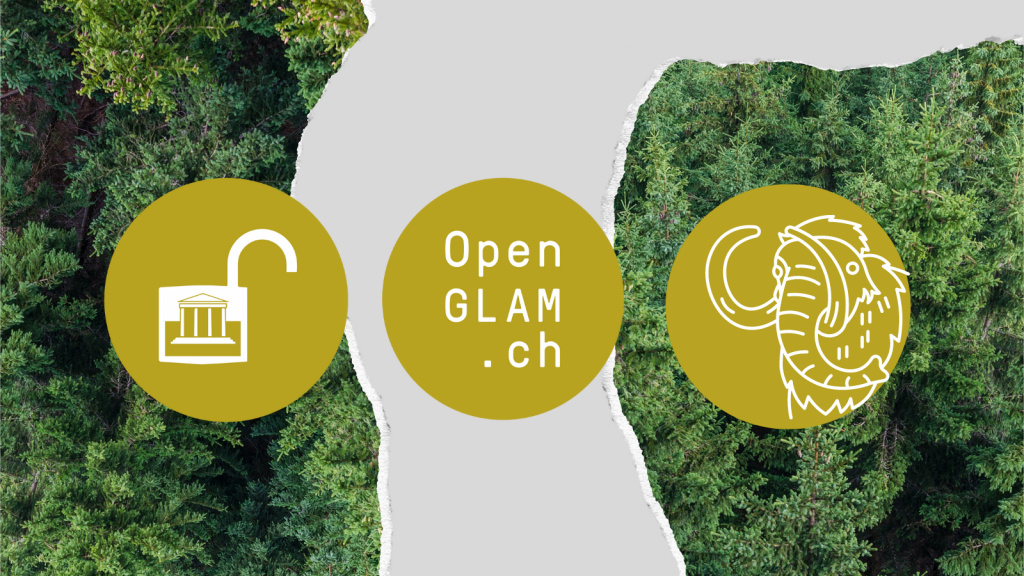
Workshop Day on Open/FAIR Natural History Data
On September 20th we’ll have a Workshop Day on Open/FAIR Natural History Data at the Natural History Museum in Bern.
The workshop day is intended for curators, managers, and users of natural history collections in Switzerland. It serves as a forum to draw up an overview of the current situation regarding data management and digitization in Swiss institutions and sets the collections and their data in the wider context of the emerging ecosystem of open/FAIR natural history data with its various infrastructures, stakeholders, initiatives, usage scenarios, value-added services, and governance structures.
The workshop day is a pre-event of the GLAMhack 2022, organized by the OpenGLAM working group of the Opendata.ch association, hosted by the Natural History Museum of Bern and supported by Plazi.org and the eBioDiv Project, in cooperation with SwissCollNet and Infofauna.
Date: Tuesday, 20 Sept. 2022
Time: 09:15 – 17:00
Place: Natural History Museum of Bern
What else….
In the meantime follow Opendata.ch on Twitter, LinkedIn or follow openGLAM on Facebook.
Check out our make.wiki.openglam space or our website.
Check out our open GLAM Newsletter and Opendata.ch Newsletter.
Wikidata Coffee Break April 22

Join us for a Wikidata Coffee Break and help fill in missing information on Swiss performing arts institutions and venues.
On each of the dates below, we will meet online on zoom for 20 minutes and add missing information on Wikidata.
Monday, 25.4. 15:00
Tuesday, 26.4. 10:00
Thursday, 28.4. 15:00
Friday, 29.4. 10:00
No previous knowledge or registration is necessary. Just show up and have some fun with Wikidata. We’ll explain to you how it works.
Join Zoom Meeting
https://us06web.zoom.us/j/89186256208?pwd=M0JCamhVZncyVGh1eW5nTHhuVUpndz09
Meeting ID: 891 8625 6208
Passcode: 801995
On Monday we’ll be working with the following list: https://w.wiki/52Ww
On Tuesday we’ll be working with the following list: https://w.wiki/56bC
Save the Date GLAMHack2022
Get your agendas out and jot down the 4th-5th November 2022! Because we’re yet again doing what GLAMers do best: HACK!
This year’s GLAMHack is taking place in Mendrisio in collaboration with the SUPSI.
This is also a call for data suppliers to get their data, archives, libraries ready for some open data-ing in the field of cultural heritage, natural history and natural heritage!
Find out how to do that in German or French.
Stay tuned for more or write to [darienne.hunziker at opendata.ch] for more information.
We can’t wait to see and hack with you!
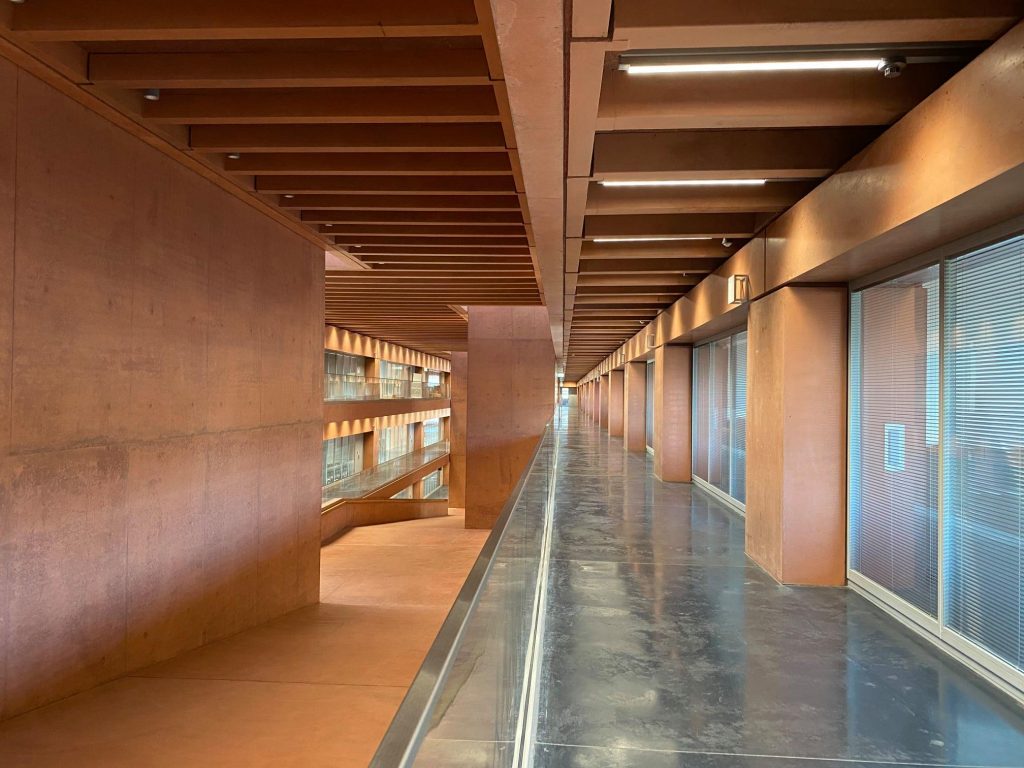
Zusätzlicher Wikidata für GLAM Kurs
Einführung in WikiData für GLAM-Institutionen Teil 1
Dienstag 15. Februar 2022, 19:00-21:30 Uhr
Deutsch, online
In diesem Kurs lernen Sie die Grundlagen von WikiData für GLAM-Institutionen kennen und wie sie WikiData für Ihre Institution nutzen können. Anhand einfacher Übungen wird das Gelernte vertieft. Der Kurs wird unterstützt von Wikimedia Schweiz.
Inhalt des Kurses:
- Einführung in WikiData
- WikiData Syntax (RDF Triple)
- Einfaches Erfassen von Daten
- Einfache SPARQL-Abfragen
Kursleitung: Gaston Wey (BFH)
Anmeldung per email an: andrea.allemann@opendata.ch
Wikidata Kurse auf YouTube
Im November haben Gaston Wey und Nicolai Wenger im Namen von Open GLAM.ch Wikidata Kurse gegeben, wer nicht persönlich, dabei sein konnte, kann alles auf YouTube nachschauen. Die Kurse und daraus resultierenden Videos konnten Dank der freundlichen Unterstützung von Wikimedia Switzerland durchgeführt und produziert werden.
Links zu den YouTube Playlist, den einzelnen Kursmodulen, sowie den Kursunterlagen als PDF findet ihr unten.
Einführungs-Präsentation zum Herunterlanden als pdf
Wikidata Einführungskurs Block 1: Einführung zu Wikidata und Wikimedia
Wikidata Einführungskurs Block 2: Konzept und Syntax
Wikidata Einführungskurs Block 3: Einfache Erfassung von Daten in Wikidata
Wikidata Einführungskurs Block 4: Einfache SPARQL Abfrage
Fortgeschrittenen-Präsentation zum Herunterladen als pdf
Wikidata Fortgeschrittenenkurs Block 1: Fragen aus den vorherigen Kursen
Wikidata Fortgeschrittenenkurs Block 2: Konzept Linked Open Data
Wikidata Fortgeschrittenenkurs Block 3: SPARQL queries
Wikidata Fortgeschrittenenkurs Block 4: Automatisierter Datenimport



